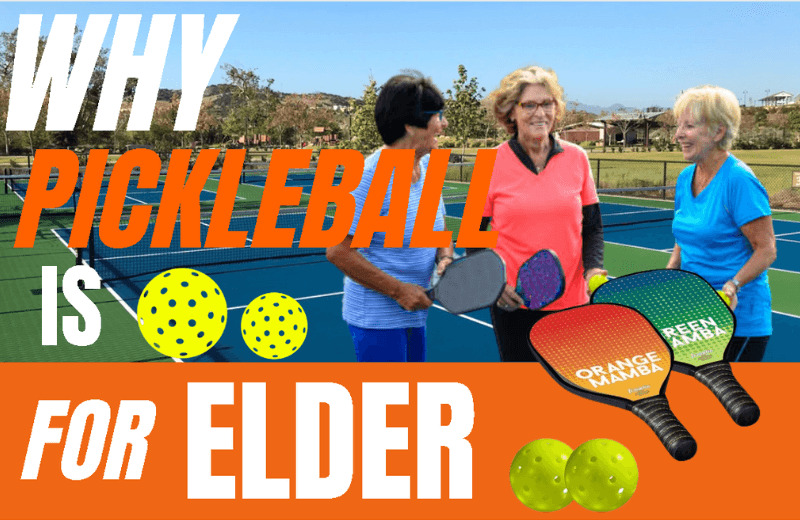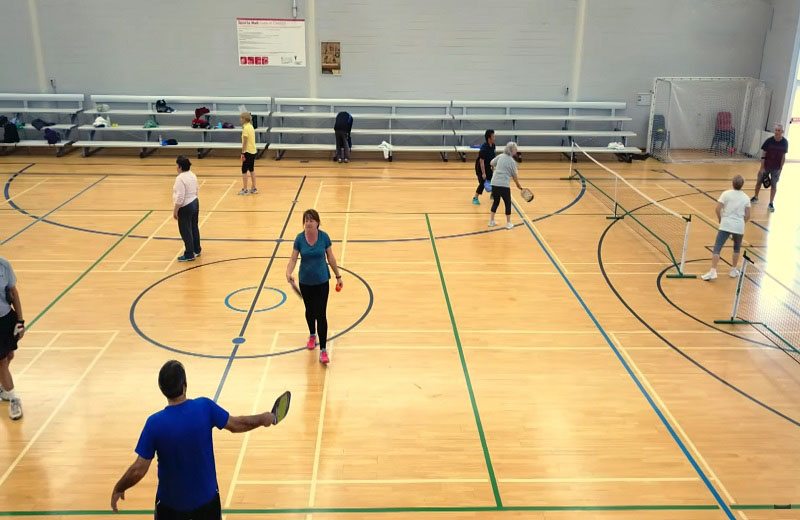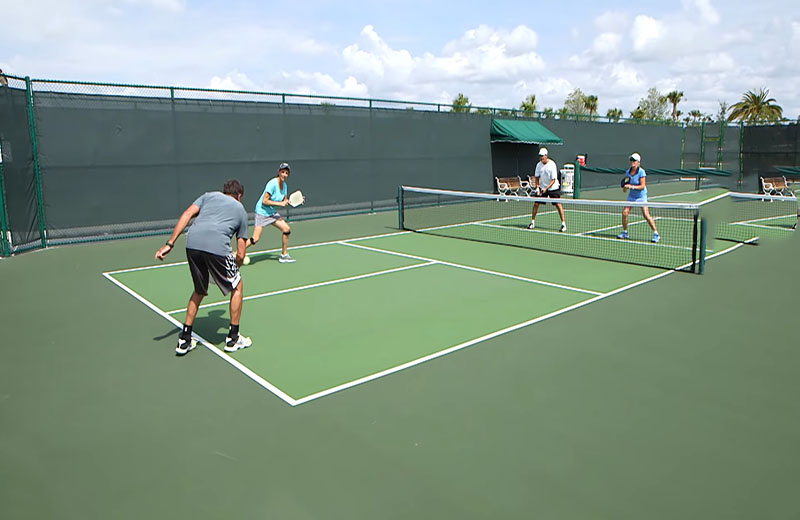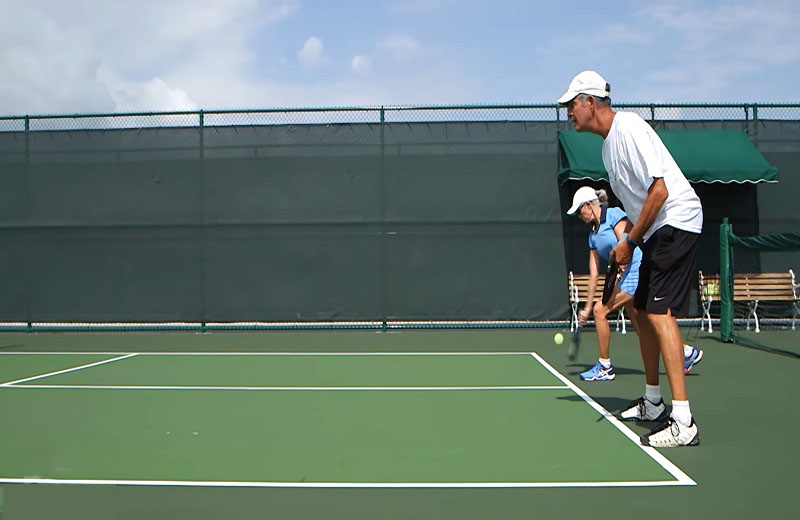
Pickleball Easy to Learn
One reason why individuals of any age find pickleball appealing is that this game is relatively easy to learn and can be played at a variety of skill levels. The learning curve for pickleball is small. Furthermore, pickleball is played on a smaller court than tennis, and the ball in pickleball is served underhand, which can make it more accessible for people with mobility or physical challenges. There is no special outfit required to play pickleball. The equipment used to play pickleball is relatively inexpensive and already available in most households.
Easy on joints when playing pickleball
Pickleball sport is a low-impact sport, meaning that it puts less strain on the joints than other high-impact activities like running or jumping. This can make pickleball a good option for seniors who are looking for a way to stay active without risking injury. Engaging in pickleball reduces the risk of injuries to almost zero. The only way you are likely going to get injured while playing pickleball is if you get tripped, and even that would not hurt you badly.
The ball that is used to play pickleball is made of soft material, so it is not going to leave any mark on you even if you get hit with it. This means that players do not have to make the same large, explosive movements that they would in a sport like tennis, which can put a lot of strain on the joints. In addition, pickleball is played with a ball that is similar to a Wiffle ball, which is softer and slower moving than a tennis ball. This is why seniors playing pickleball is getting more popular day by day.
Social benefits
Is pickleball fun? Well yes!! Pickleball is also a social activity, and many old people playing pickleball enjoy the opportunity to meet and interact with others while playing the game. Elderly playing pickleball can be a fun and social activity that allows these individuals to connect with others and form friendships.
Numerous community centers and parks offer pickleball courts and organized games or tournaments, which can provide a sense of community and connection for people of an older age, who may be retired or otherwise isolated. Many of these older adults are retired, devoid of a daily job routine. There’s a vacuum in their social life that was once filled by the presence of their colleagues and work friends. For these people, pickleball is a brilliant way of filling that social void. It’s an easy-to-play sport where older individuals can find companionship with their age fellows. What more could they ask for?
Stimulates the brain when engaged in the play of pickleball
Some research has suggested that regular physical activity, specifically by playing pickleball, senior citizens or elderly individuals can experience improvement, their cognitive function, including memory, problem-solving, and decision-making skills. Playing pickleball requires players to make quick decisions, anticipate their opponent’s moves, and react to the ball, which may help to engage and stimulate the brain. It works as a mental workout. It keeps their mind active and carefree during the time they are engaged in pickleball.
Offering older people a challenge
By engaging in pickleball, people of all ages, especially seniors, get a chance to continually improve their skills. Pickleball’s appeal lies in its versatility as a game that can be played at various skill levels. As they keep playing, older adults can continually enhance their strategies and abilities. The process of learning and improving at pickleball provides not just an avenue to stay active and engaged, but it also instills a sense of accomplishment and purpose in their later years.
Pickleball: A Gender-Neutral Sport
Pickleball, sometimes affectionately referred to as ‘ball pickleball’, is a gender-neutral sport that is appreciated by people of all ages and genders. There are no specific gender requirements or restrictions for playing pickleball, welcoming both men and women to actively participate at any level of play. Older individuals, in particular, find this aspect of the sport highly appealing.
By engaging in the sport of pickleball, older people can interact with opposite-gender age fellows, not only bolstering their physical health but also expanding their social circles. It’s not uncommon for pickleball players to strike up new friendships or even meet potential partners during the games. To aid in their journey of mastering pickleball, many older players contact MUSC and other medical centers for fitness advice or potential health services specifically related to the sport of pickleball.
Promoting Healthy Aging: The Unexpected Benefits of Pickleball
Pickleball is a fun and accessible activity that is enjoyed by people of all ages, including older adults. Partaking in this sport not only promotes physical activity, but also offers social interaction that has shown positive effects on cognitive function and brain health. Many medical center, including MUSC Health, have noticed these benefits and are now advocating for older adults to participate in pickleball. While more scientific research is needed to fully understand the relationship between pickleball and brain health in older adults, current findings support the notion that this game can significantly improve both physical and mental health. Medical services, in response, are also expanding their support for such activities as a way of promoting healthy aging. In essence, pickleball is more than just a sport; it’s a tool for staying active, fostering mental wellbeing, and forging meaningful connections within the community.
Is pickleball a sport for old people?
Why is pickleball good for old people?
Is 70 too old to play pickleball?
Why Is Pickleball So Popular?
Read more:




